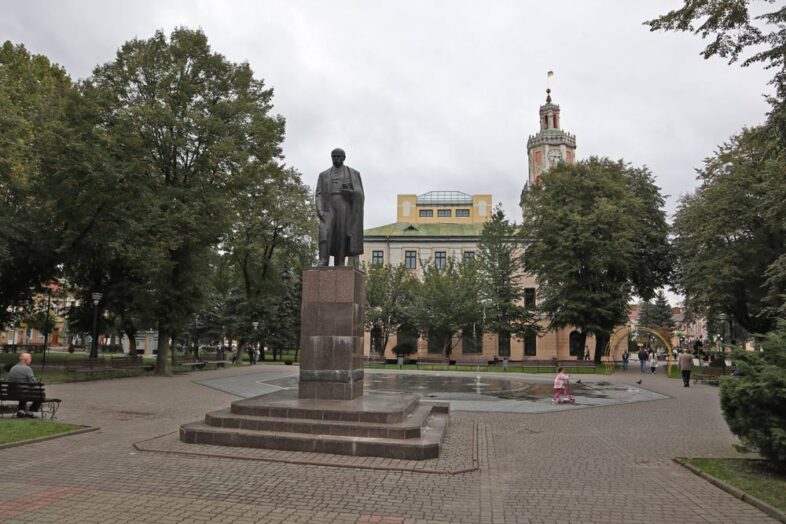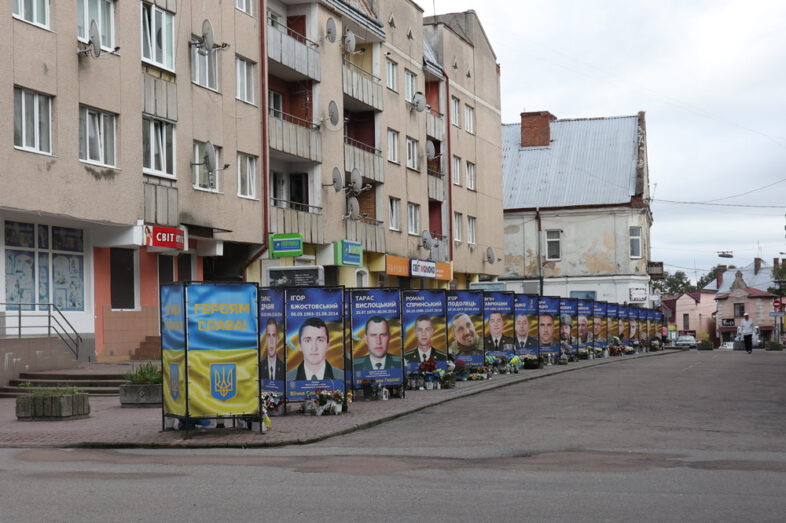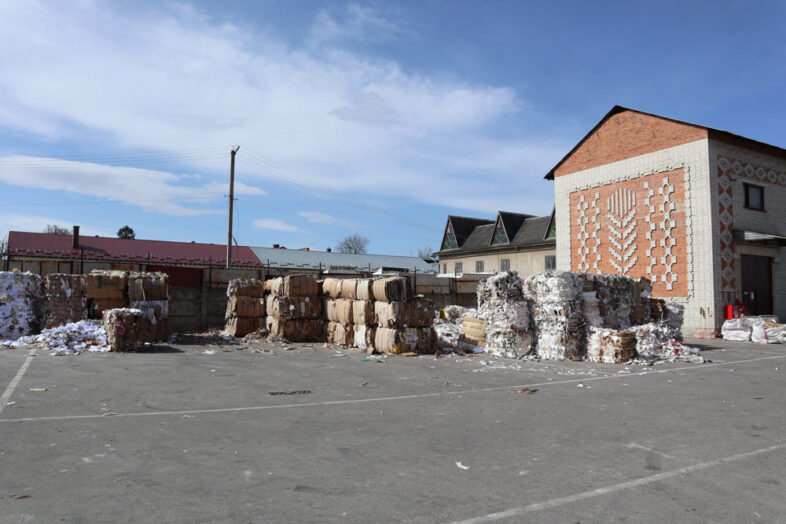Sambir lies roughly 40 kilometres from the nearest border crossing with Poland, less than an hour’s drive. This proximity isn’t just a detail on a GPS map—it’s felt in the landscape, where military checkpoints now punctuate the journey. Soldiers, courteous but vigilant, peer into the windows of every car approaching the city. It’s a quiet yet constant reminder of the new wartime realities that have reshaped everyday life.
This city, with its vibrant and storied past, is among the most ancient in Eastern Galicia. In the 13th century, what is now Sambir was once the Ruthenian settlement of Pohanych, while the original Sambir lay about 18 kilometres from the modern town. When the destructive forces of Khan Batu’s hordes laid waste to the original settlement, the surviving townspeople sought refuge in the fortified Pohanych. Over time, this new settlement flourished, evolving into the Sambir of today, while the ruins of the original town became known as Stary Sambir, a name that preserves the memory of its tumultuous past.
By the 16th and 17th centuries, Sambir had become a major trading hub in Galicia. Merchants from Lviv, Kraków, and Vienna would convene here five times a year for grand fairs that lasted several weeks.
The city’s central Rynok Square, dominated by its ancient town hall, stands as a testament to this prosperous era, evoking the historical significance of Sambir as a vital link in the region’s commercial network.

Today, due to its strategic location near the border and well-developed infrastructure, the city has also become a magnet for businesses. In the wake of the full-scale invasion, several companies from frontline regions sought refuge here. One such enterprise is the Kharkiv-based confectionery firm Allcookies, which relocated to Sambir at the outset of the 2022 invasion. However, as one of its managers shared with The Ukrainian Week, the company returned to Kharkiv after a year. According to representatives, the previous winter in Kharkiv had passed with stable electricity, and despite ongoing concerns, they remain optimistic about resuming effective operations in their hometown once again this year.

Another Ukrainian company that launched operations in Sambir following the invasion is SEMecopack, a producer of sustainable packaging made from recycled materials. SEMecopack’s story sets it apart from other businesses relocated to Western Ukraine. The owners had purchased premises on the outskirts of Sambir—where eco-friendly packaging for berries, fruits, and coffee cups is now manufactured—well before the full-scale invasion. At that time, their entire production was based in Tomakivka, in the Dnipropetrovsk region. When the invasion began, a significant portion of their operations was transferred to Sambir, though a production line continues to run in Tomakivka as the company remains confident in Ukraine’s victory. Beyond Sambir, SEMecopack maintains offices in Zhytomyr and Kyiv, underscoring its commitment to growth despite the challenges of war.

Photo: CEO of SEMecopack, Volodymyr Kovtunenko
Eco-friendly packaging is steadily gaining traction in Ukraine, with approximately 70% of SEMecopack’s products finding their way to international markets. The company exports to countries including Germany, Greece, France, Italy, Poland, and several others across Europe, while its eco-packaging is also in demand in the United States. SEMecopack’s commitment to sustainability is exemplified by its reliance on recycled paper materials for production. Piles of these materials can be observed in the company’s yard, where a production line adeptly transforms used paper into stylish, eco-friendly packaging. Volodymyr Kovtunenko, the company’s CEO, shared with The Ukrainian Week that a portion of the raw materials necessary for producing recycled paper packaging must be imported, highlighting a shortfall in local supply. This raises questions about the current reading habits of Ukrainians, suggesting that they are not consuming paper newspapers in sufficient volumes for recycling into eco-friendly packaging or that waste sorting practices still require improvement.

Photo: Collected paper waste is prepared for recycling.
Despite the formidable challenges posed by wartime, SEMecopack continues to flourish and forge partnerships within the Lviv region. Recently, the company embarked on a collaboration with the Institute of Chemistry and Chemical Technologies at the Lviv Polytechnic National University. SEMecopack has already secured patents for several innovative types of packaging, signalling a commitment to research and development. This partnership with one of Ukraine’s foremost scientific institutions represents a significant milestone in the company’s evolution and is expected to bolster its innovative capacity, according to SEMecopack’s representatives.
As one makes the journey from the outskirts of Sambir, home to SEMecopack, toward the city centre, a vivid picture begins to form of a town poised to transform into a critical hub near the Polish border. Steeped in rich historical heritage and brimming with economic opportunities, Sambir boasts considerable potential, much of which has yet to be fully realised. The landscape is shifting; however, as new businesses emerge in the area, each one is contributing to a growing momentum. This influx of entrepreneurial spirit may prove instrumental in unlocking Sambir’s latent possibilities, sparking a revitalisation of both the local economy and the community itself. As these developments unfold, the town’s narrative continues to evolve, weaving together its storied past with the promise of a vibrant future.

